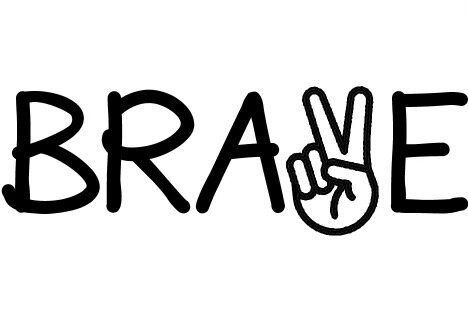Podcast
Show Notes
Full podcast series available on Spotify.
Co-Creating Liberatory Spaces in Higher Ed
Podcast Series by Meaghan Davis
Podcast Description
This podcast will focus on operationalizing what I am learning through my current research as a doctoral student regarding liberatory spaces in higher education. The podcast series will cover content from my literature review for my dissertation proposal. So far I have been able to identify 10 unique characteristics of liberatory space from the literature. These 10 characteristics are drawn heavily from the work of Dr. bell hooks, Dr. Sara Ahmed, Dr. Bettina Love, and Dr. Leigh Patel.
Liberatory spaces are built and designed to engage in the work of individual and collective decolonization and liberation from dominant power (Jones, 2021). My interest in liberatory spaces as I just described began with my own lived experiences, coupled with unwavering inspiration from students. This research project was ignited when I learned about a theory posited by John Meyer (2016) -- that there are two primary outcomes of education, a) transformation and liberation or b) indoctrination and oppression.
There is still much more to discover about the true nature of liberatory spaces in higher education, including the factors that lead to the presence of liberatory spaces, the inspirations and the deterrents for involvement, and the identities of folx at the center of it all. The purpose of this project is to investigate the phenomenon of liberatory spaces in higher education and participants' perceptions of their contributions to co-creating liberatory spaces.
References
Ahmed, S. (2012). On being included. Duke University Press.
hooks, b. (1994). Teaching to transgress: Education as the practice of freedom. Routledge.
Love, B. (2019). We want to do more than survive: Abolitionist teaching and the pursuit of educational freedom. Beacon Press.
Meyer, J. W. (2016). The effects of education as an institution. In A. R. Sadovnik & R. W.Coughlan (Eds.), Sociology of education: A critical reader 3rd ed (pp. 133-148). Routledge.
Patel, L. (2021). No study without struggle. Beacon Press.
Podcast Goals & Overview
This podcast has three main goals:
Deepen our understanding of the Characteristics of lib spaces
Share Strategies for how to co-create liberatory space
Model the co-creation of liberatory spaces through this podcast
To achieve these goals my guests and I will discuss the research and share strategies and action items. We will focus one-two of the ten characteristics in each episode. However, I am sure there will be organic integration of all ten characteristics in most episodes throughout the series.
I will have one or more guests, including students and educators, for each episode. The episodes will be structured in two main parts. First, the guests and I will establish a foundation of understanding of the topic for that episode based on what scholars are saying. The second part will be focused on identifying strategies for folks to use in their work as co-creators of liberatory spaces. Each episode will include show notes with a reference list. Transcriptions and captions will be provided for all content.
Show Notes by Episode
Trailer → Co-Creating Liberatory Spaces in Higher Education
Episode 1 → Back to Where it all Began: BRAVE and the Inspiration Story
Description: Meaghan reconnects with former college students from The BRAVE Institute to discuss the 10 characteristics of liberatory spaces.
Guests: Emma Whitmore and Shelby Mehmet, LMSW
Episode 2 → Disrupting Dominant Power
Description: Dr. Sylvia Spears provides insights into the ideas captured by scholars regarding liberatory spaces and shares examples from her own lived experiences in which liberatory spaces came to life.
Guest: Sylvia Spears, PhD
Episode 3 → Self-Actualization: A Journey Without a Finish Line
Description: Dr. Brittney Yancy and Meaghan discuss the power of what bell hooks calls, “coming to voice” as well as the value of (un)learning our individual and collective histories.
Guest: Brittney Yancy, PhD
Episode 4 → Healing in Higher Education
Description: April Barton, LCSW, and Meaghan engage in dialogue about recognizing trauma and healing in higher education as well as strategies for developing and fostering relationships and a sense of belonging.
Guest: April Barton, LCSW
Episode 5 → Sharing Power with Students
Description: David Ouimette and Meaghan engage in a vibrant conversation about sharing power with students through peer education as well as bringing fun, excitement, and emotion to our work with students and colleagues.
Guest: Dave Ouimette
Episode 6 → Co-Creating Possibilities
Description: Guests, Amanda Greenwell and Keidra Taylor, connect with Meaghan about the power of reflection and reframing goals in higher education in order to co-create possibilities with and for our students.
Guests: Amanda Greenwell, PhD and Keidra Taylor
Episode 7 → Freedom and Faculty (and Staff, and Administrators, too!)
Description: Dr. Molly Mann and Meaghan discuss strategies for co-creating liberatory spaces with and for faculty, staff, and administrators in order to move toward our own emancipation and prepare to help students do the same.
Guest: Molly Mann, PhD
Episode 8 → This is What Our Leadership and Our liberation Look Like
Description: Four fantastic students from the Peer Leadership Academy at St. Francis College chat with Meaghan about their experiences in a liberatory space and the impact of those experiences on their personal empowerment.
Guests: Melissa Gonzalez, Tehilla Seuraj, Tolulope Atolagbe, and Kiara Moran

